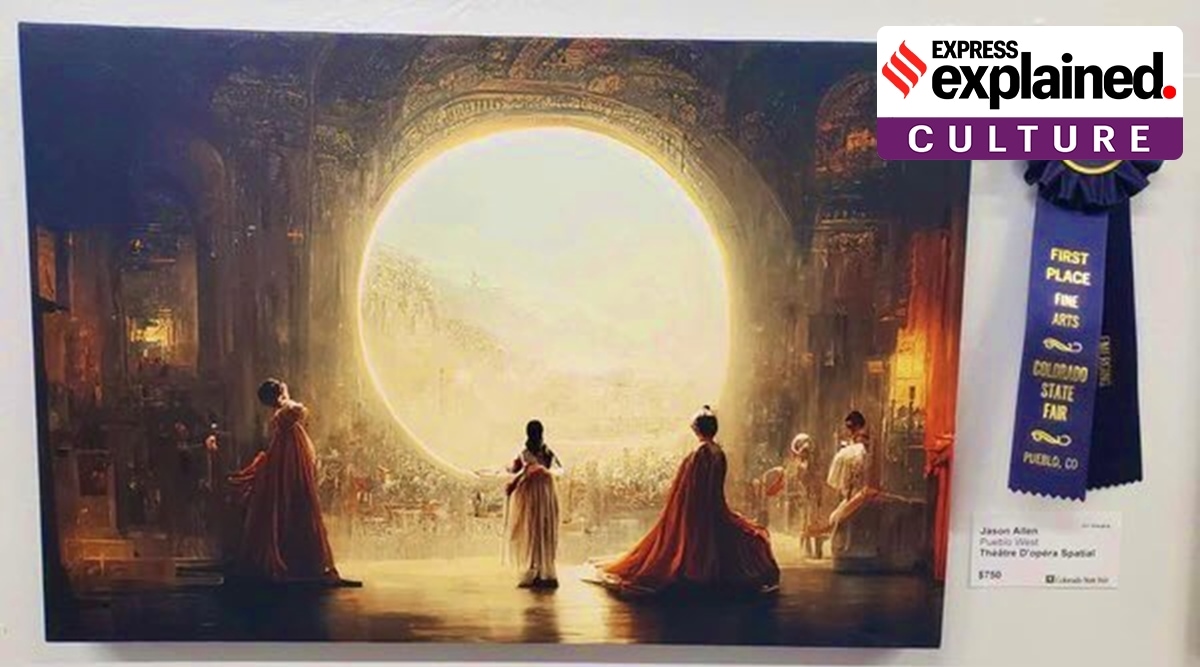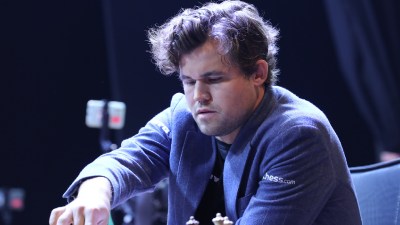How an AI-generated artwork won the top prize in a US art competition
The winner, Jason Allen, is president of Colorado-based tabletop gaming company Incarnate Games. He won in the digital art category with a work called “Théâtre D'opéra Spatial” or ‘Space Opera Theater’.
 Jason Allen's “Théâtre D'opéra Spatial” or ‘Space Opera Theater’. (Twitter/@rgshanbhag)
Jason Allen's “Théâtre D'opéra Spatial” or ‘Space Opera Theater’. (Twitter/@rgshanbhag)A 39-year-old last week won the top prize at the Colorado State Fair’s fine art competition for work that he created using artificial intelligence (AI). While the development has reignited the fierce debate over AI in art, the man behind the artwork is unfazed. Amid criticism, he told The New York Times, “I’m not going to apologise for it…I won, and I didn’t break any rules.”
Artwork and the winner
The winner, Jason Allen, is president of Colorado-based tabletop gaming company Incarnate Games. He won in the digital art category with a work called “Théâtre D’opéra Spatial” or ‘Space Opera Theater’.
As the title suggests, the artwork depicts a space setting with figures in robes looking out through a viewport. The work brings together space opera and classical Baroque elements.
How was the artwork created?
It was created using Midjourney, which is an AI software that converts text prompts into visual images. The beta version of the software was available from July 2022 and it has allowed users with no training in art to create highly detailed artworks. Critics of AI-generated art, such as this one, argue that converting prompts into art is like painting-by-numbers, which means that there is no real artistry or skill involved. Midjourney, in a matter of minutes, can create a digital artwork that would ordinarily take hours, if not days. “Users type a series of words in a message to Midjourney; the bot spits back an image seconds later,” The NYT noted.
AI threat to art?
After Allen’s post about his award-winning artwork made it to Twitter, it was met with severe backlash.
“This is so gross,” a user wrote. “I can see how AI art can be beneficial, but claiming you’re an artist by generating one? Absolutely not.”
Yet another tweet went, “We’re watching the death of artistry unfold before our eyes — if creative jobs aren’t safe from machines, then even high-skilled jobs are in danger of becoming obsolete.”
The winner’s defence
Midjourney typically creates a number of versions using the prompts and users choose the best outcomes. Allen reportedly had hundreds of iterations of which he chose the top three, and printed them on canvas. According to reports, he submitted it in the digital art category under the name “Jason M Allen via Midjourney”, which meant that he had disclosed the nature of the artwork to the judges.
Furthermore, as The New York Times reported, the category’s rules allow any “artistic practice that uses digital technology as part of the creative or presentation process.” This could mean that using AI programs to create art is no different from using other software such as Photoshop. The judges, however, were unaware that Midjourney was an AI program but went on to state that they would have declared Allen as the winner even if they had. Many believe that the increasing popularity of AI-based will lead to the creation of a separate category that keeps it distinct from other forms of digital art.
- 01
- 02
- 03
- 04
- 05






































